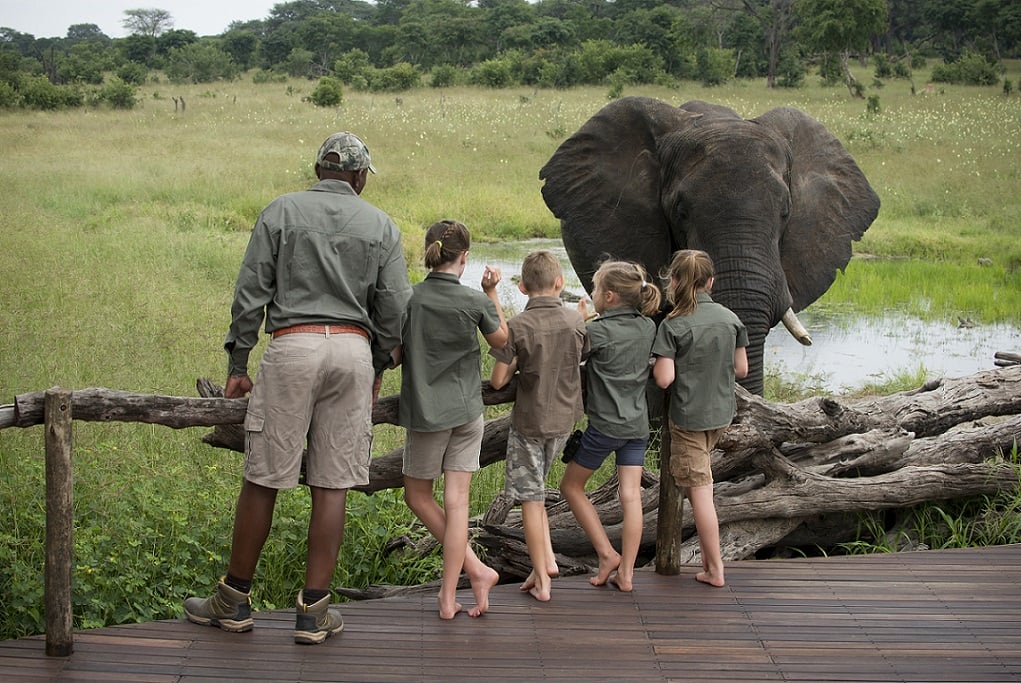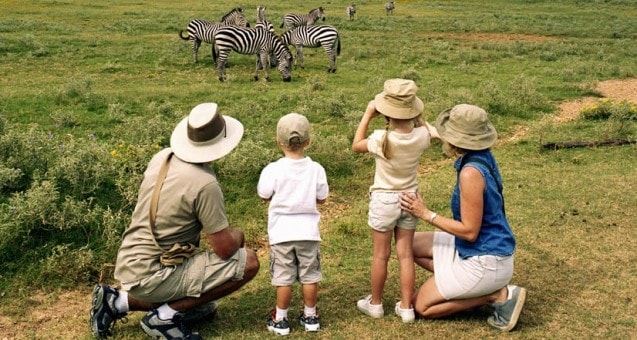Common Mistakes to Avoid When Planning A Family Safari. If you’ve been on a safari before, you’ll discover that planning a family safari is complicated, especially when your children are older and you can’t leave them back home. You have to avoid many mistakes to pull off a successful safari with the entire family.

It is rewarding traveling with the kids
It gets harder and harder to travel without children when you want to see experiences through their eyes. Travel affords you time with your family with every other daily responsibility like laundry, dishes, and work things put on hold. There’s nothing more mindfully rewarding than traveling to Africa with the kids.
Working with a local operator to plan a successful family safari, especially during the summers, will help you avoid these common mistakes when planning a family safari to Africa.
Not working with a travel professional
There is excellent information readily available online for anyone to plan a family safari independently. While that may work for many journeys across the world, you will find safari the most tasking, especially if it involves your entire family.
Avoid the mistake of planning a family safari on your own and save great close to 60 hours of planning time. An expert planning a typical safari can take about 20 to 90 hours per trip. Imagine how much time you will spend to get the journey ready.
Consider the complexities of a safari you will have to navigate, visas, vaccines, remote locations, entry permits, transportation, lodging, etc. The logistics of planning a family safari can be a nightmare for anyone who does not live in Africa or has never planned a family safari before.
You cannot overstate the importance of a tour operator in helping you avoid planning mistakes, their connections, and their relationships with local properties and guides. A local operator will add value, peace of mind, and exclusive access to their planning resources for a successful family safari.

Choosing the wrong properties for the family experience
Many travelers make the mistake of not carefully selecting properties, especially camps and lodges, suitable for the whole family. Your entire journey depends on finding suitable accommodation that will make every family member comfortable, fed, and entertained during the trip.
Once you’ve selected the places you will visit, ask your tour operator to recommend lodging properties that accommodate the whole family without compromising safety and comfort.
Features you should look out for include a fence around the camp, a family room with multiple bedrooms, a common area to house everyone under the same roof, and children’s activities to keep the kids busy while adults go for child-restricted activities.
Private villas and cottages are a thing in destinations like Uganda and Rwanda. Private villas offer multi-generational travelers unique guest treatment, privacy, and comfort under one roof. They are a great fit for family safaris after the pandemic, which has made us more aware of how important family is and how we may unexpectedly have to go long periods without seeing relatives who live elsewhere.
A common mistake with choosing to lodge for a family safari is assuming that all properties don’t charge kids or will reduce the room price for children. That may not be the case with some properties.
Not considering family safari age restrictions.
Many safari camps and lodges have age restrictions varying between 5 to 12 years. Some offer free accommodation for children younger than six years. Other camps, especially family-owned properties, provide incredible options for all ages.
You must avoid the mistake of choosing any property because it’s all-inclusive for a family safari. You may find that some activities like gorilla trekking, chimpanzee tracking, and canoeing are not suitable for younger children.
The best age for children on safari should be above six or eight. At that age, they get more out of the interactions with guides in the wild and can spend more hours on game drives. If you travel with teenagers, you will encounter fewer age restrictions but avoid mistakes by asking your tour operator in advance.
When it comes to the cost of traveling with children, countless lodges offer free accommodation to children under six, provided they share a room with an adult. Additionally, many camps offer a special rate for children under sixteen sharing a room.

Not planning the length of the trip is suitable for kids.
Please don’t make the common mistake of rushing a family safari because it’s that once-in-a-lifetime experience that deserves a relaxed flow of time. Besides, it’s a long journey traveling to Africa, and long-distance driving between places may be involved. You have to give enough time for everyone’s body to adjust and allow for exciting experiences with the destination.
A family safari with an amazing time for children usually lasts 7 to 14 days. Any less time may make you feel like you missed out on many things.
Your trip’s duration can be interrupted by the mistake of traveling in the wrong season, especially during the rain. Make sure to look up the best time or seasons for a family safari in your selected destination to maximize your journey’s time.
Traveling at the wrong time
When planning a family safari, the biggest mistake is choosing to travel in the rainy season when torrential rains disrupt every activity. The children may find it the most boring journey of their lifetime.
The best time for the whole family to enjoy watching animals is during the warm, dry weather when the grass is short, and visibility is good. That is approximately June to September and December to January.
We highly recommend February, March, September, and October as the best months for maximum game-viewing for a family safari in Kenya and Tanzania. Also, anytime other than April and May, the rainiest months, are fine for a family safari in Uganda and Rwanda.
Not preparing the whole family for the upcoming experiences
The attention span and likability of younger children can hinder maximizing the safari experience. Do not make the mistake of not engaging the entire family during the family safari planning.
Encouraging the children to engage in your safari planning goes a long way. Discuss the destination and what they should expect on the trip with the family members. Establish what style of exploring and embracing the wilderness would work for them.
Explore what they know about Africa, the people, cultures, and animals. Help the children understand the difference between watching animals in the zoo and out on safari and how they should behave when they see them. Perhaps create a checklist to get them excited to research the animals and activities. These conversations are fun for the kids and are very important in preparing everyone for what’s to come.
Cary books or movies about Africa or safari to watch during the long flights. They will keep the little minds occupied and interested in what is to come. Do not make the mistake of avoiding your packing list months before your trip.
Not preparing for your luggage
Not everything you took on your family trip to Paris can come to Africa. Avoid that mistake and pack light and smart.
Look into your packing list a few weeks before you travel to avoid bringing unnecessary things and get precisely what your kids will comfortably need. Consider packing your children’s favorite electronic devices to keep them occupied during the evenings when adults are having a conversation over a drink.
Pack a couple of exciting books, especially books about Africa, animals, and people. Games and coloring-in material, small and neat enough to fit into your carry-on luggage.
The entire family should bring good walking shoes and clothing in neutral colors. Perhaps, each person should bring a camera (or phone) and a pair of binoculars. A journal is always fun for older kids to write their experiences and tick-off the animal list.
Please leave all the bulky stuff, like electronics, back home—pack light for easy airport transit of local transfers.
Check out some of the highly recommended family safari packages:
8 Days Uganda safari to Bwindi, Queen Elizabeth, Kibale and Murchison Falls







